What to do when there is a water leak in the house
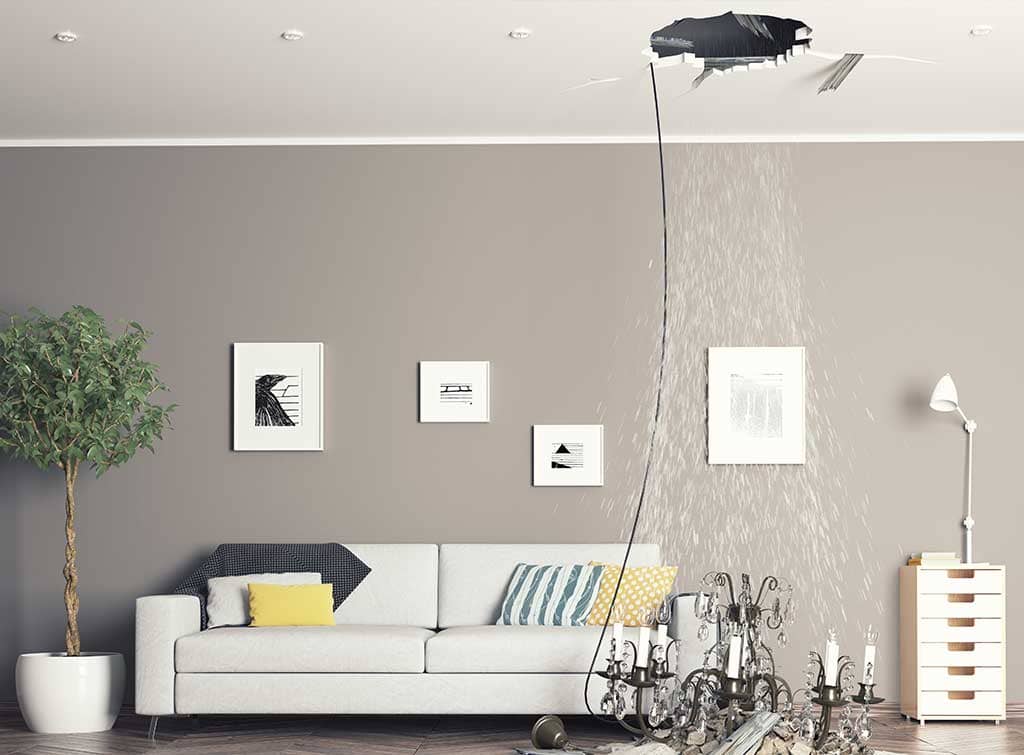
According to the Association of British Insurers (ABI), at least one in four building and contents insurance claims are down to leaky or burst pipes.
Most of us, at some point or another, have had to deal with that spreading damp patch, dripping noise, or perhaps even a ceiling coming down. If you’ve just found a leak in the house – or you want to be prepared in case the worst happens – you’re in the right place.
Here, we’ll walk you through exactly what to do. But first…
How to find a leak in your house
Not all leaks come in the form of a gush of water streaming through your ceiling.
Instead, many leaks can be slow and subtle, which can make them even more damaging.
Keep an eye out for these signs of a leak in your house:
- A damp smell
- Mildew on the walls
- Warped floorboards
- Warped doorways
- A dripping sound
- Unusually large water bills
If you spot any of these signs, you could be dealing with a water leak.
What to do if you have a leak in your house
Whether you’ve spotted signs of a water leak in your ceiling, wall or elsewhere in your home, you’ll need to act quickly before it gets any worse. Here’s what to do.
1. Turn off the water
No matter the cause or where the leak is, you need to stop it from worsening. That’s why the first thing you should do is turn off the water using your stopcock.
Not sure where your stopcock is? Usually, it will be located on the ground floor of your home, under the kitchen sink.
Once you’ve found it, turn it off. Then, turn on the cold water tap until it stops running to drain the pipes.
2. Check where the leak is coming from
If the water leak is obviously being caused by your dishwasher or fridge, then the appliance is likely at fault. Turn it off and check your warranty.
But if it’s a bigger leak from a water pipe, then you’re going to need some professional help.
3. Call a plumber
If you’re wondering who to call for a water leak in your house, the answer is usually a plumber.
Some insurance policies will cover you for emergency call-outs. So, if you’re not feeling too flustered, you can dig out your insurance documents to see if you have emergency cover, and call your provider.
But often, the quickest and easiest solution is to find a local plumber who can come out now. Many plumbers near you will offer emergency call-outs. If you’re lucky, they could be there in as little as an hour.
Type your postcode into the search box below to find an emergency plumber near you.
4. Turn off your heating
While you’re waiting for professional help, we recommend turning off your heating. This is because you probably don’t yet know whether the leak is coming from your heating system.
First, turn off the water supply to your heating system using the shut-off valve next to your boiler. Then, turn on the hot water tap to drain the system.
Finally, turn off the boiler itself at the mains.
5. Turn off your electricity
If water from the leak is near to electrical sockets, switches and appliances, you should turn off the electricity.
This will help protect fittings that can be damaged by water and keep your home safe while you wait for a plumber to arrive.
6. Leave it to the professionals
Once your plumber arrives, you can breathe a sigh of relief knowing that you’re in safe hands.
Your plumber will carry out some home leak detection work to get to the bottom of where the water is coming from and then provide the necessary fix.
Professional home leak detection
Plumbers are experts when it comes to water leaks. They’ll usually have a range of different equipment and techniques that they can use to detect water leaks in your house. These include:
- Tracer reels and utility trackers
- Listening discs and ground microphones
- Tracer gas
- Infrared cameras
- Borescope cameras
Once they get to the bottom of what’s causing the leak, they should be able to fix the issue quickly so that you can get on with repairing any water damage.
What to do after a water leak in the house?
Once you’ve found and fixed your water leak with the help of a plumber, you’ll need to repair the water damage in your ceiling, wall, or elsewhere in your home.
It’s important to make sure the area is completely dried out before repairing and redecorating it.
It’s often safest to hire a professional painter and decorator near you to make sure that the work is carried out properly. The last thing you want is to redo it in a couple of months because it wasn’t dealt with properly in the first place.
Emergency water leak checklist
Now you know who to call and what to do if your house has a water leak.
But here’s a quick checklist to make sure you’re fully prepared:
- Always know where your stopcock is so you’re not searching for it in the middle of an emergency
- Turn your stopcock on and off every now and again so it doesn’t become stuck from underuse
- A plumber is normally who to call if you have a leak in your house
Need to find a plumber near you to deal with a water leak? Enter your postcode into the search box below.
FAQs
What are signs of a water main leak?
Water where it shouldn’t be isn’t the only sign of a water main leak. Here are some other indications:
- Hissing or bubbling sounds
- Low water pressure
- Mould and mildew
- An unexplained hike in your water bill
Who is responsible for mains water leaks?
That depends on where the leak is. As well as the stopcock inside your property, your house will be fitted with an external stop valve.
If the location of the mains water leak is on the property side of the external stop valve, it will be your responsibility to deal with it. On the other hand, if the leak is on the street side, it will be your water supply company’s responsibility.
Just bear in mind that if there’s a water leak on the street side of your water valve, you won’t see any signs in your water bill as it won’t pass your water meter.
How do I find out where a pipe is leaking?
Some leaks occur out of sight, which can make it hard to tell exactly where a pipe is leaking.
Luckily, plumbers have many different tools to pinpoint the exact spot of a leak. The most precise is video pipe inspection equipment.
This involves inserting a small camera mounted on a long fibre optic cable into a plumbing outlet such as a tap. The camera feeds images back to a monitor so that the plumber can see the inside of the pipe and tell where the leak is.
How do you fix a water leak in your house?
If you can get to the exact source of the leak, you may be able to temporarily fix it while you wait for a plumber to carry out a longer-term repair.
To start with, use the stopcock to turn off your home’s water supply.
Then, cover the leak with plumbers’ tape. You should wrap this around the pipe several times to ensure it’s sealed completely.
Lastly, apply epoxy paste to any parts of the pipe that are still leaking water, and leave it to dry for around 20 to 25 minutes.
Remember, this is just a temporary fix while you wait for a plumber to carry out a full repair or replacement of the pipe.
What to do when there is a water leakage?
The first thing to do when you spot a water leak in your home is to turn off the stopcock to prevent any further damage.
After this, your best bet is to call in an emergency plumber to get immediate help.
How serious is a water leak in a house?
A water leak in a house can be very serious. In some cases, it can cause mould growth and even structural damage to a home!
With that in mind, acting quickly is important if you spot signs of a leak. By getting help quickly, you’ll hopefully be able to prevent water damage and foundation issues.
Who to call for a water leak in the wall?
If there’s a visible water leak in your wall, the best trade to call is usually a plumber. They should be able to find the cause and fix it.
Alternatively, if you’re worried that the source of the leak is hidden, you could call a leak detection specialist who can often carry out even more detailed leak detection work.
Who to call for a water leak in the ceiling?
If you notice water leaking from the ceiling, your best bet is usually to call a plumber.
However, there’s also a chance that the leak is coming from your roof rather than your plumbing—especially if you notice that the problem gets worse in wet weather. In this case, you’ll need the help of a roofer instead.
Sometimes, it can be hard to tell whether to call a roofer or a plumber. In this case, the important thing is not to leave the leak alone. Instead, call in one or the other immediately – if they can’t fix the problem, you’ll know who can!
What should I do if water is leaking into my house from outside?
There are many different reasons why water might leak into your house from outside.
For instance, if you see water leaking through your windows, your window sealant might need replacing, or the issue could be to do with blocked gutters.
Alternatively, if you see water leaking through your roof, you might need to invest in a roof repair or replacement.
Whatever’s causing the problem, you’ll need to manage the leak to prevent the damage from getting worse. This might involve catching drips with a bucket or container or placing rolled-up towels beneath the leak.
Then, call in help immediately, whether that’s in the form of a window specialist or a roofer.

We check the reviews on Checkatrade are from real people, and that trades meet our high standards.



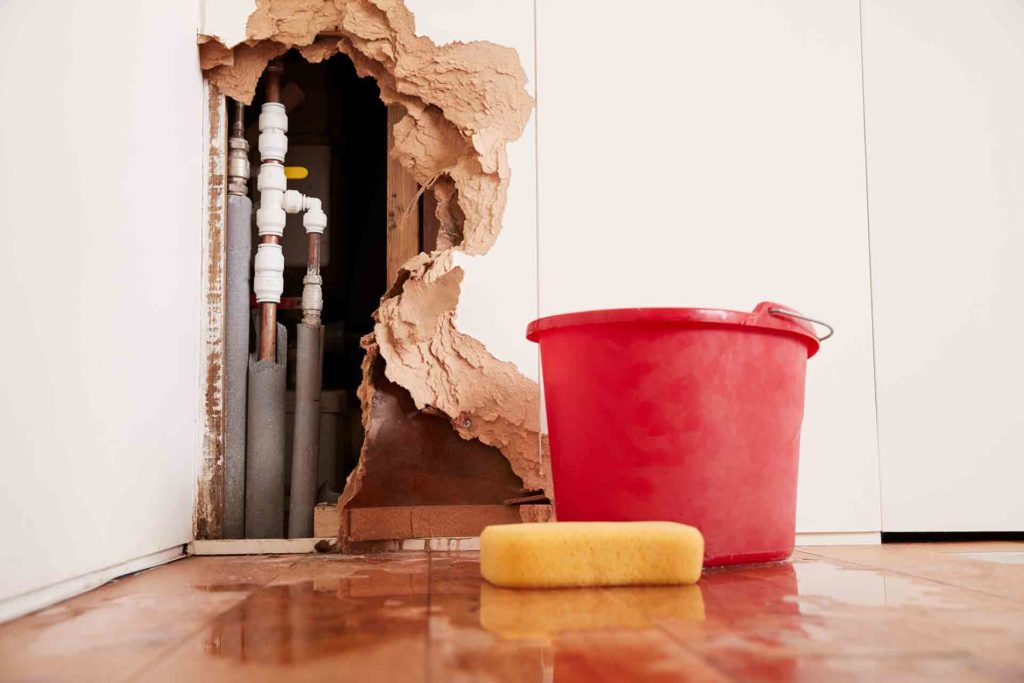
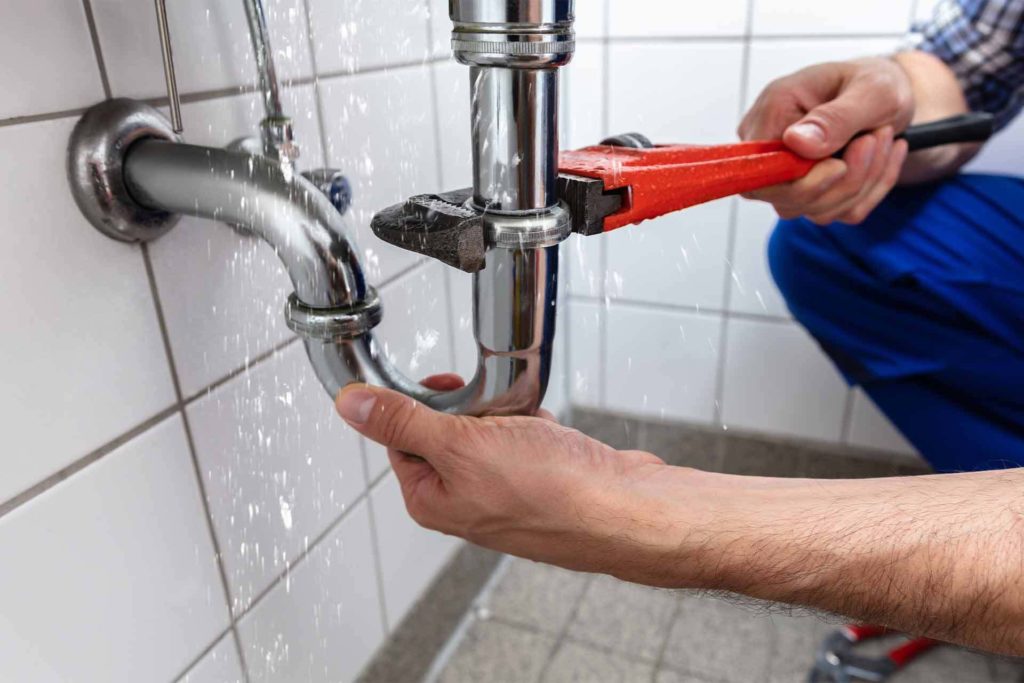
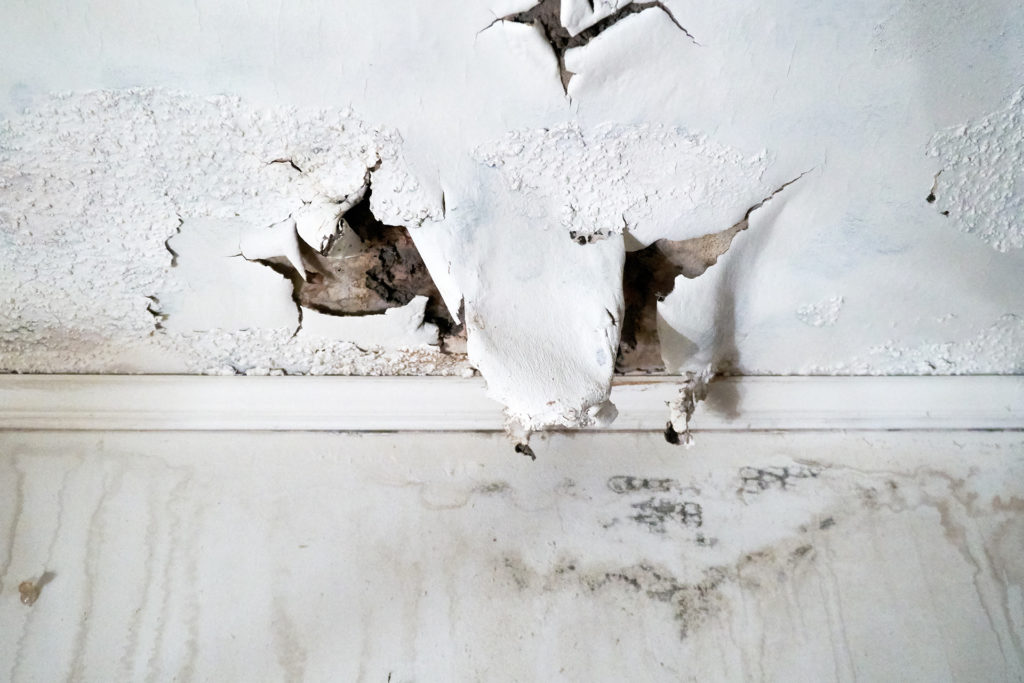
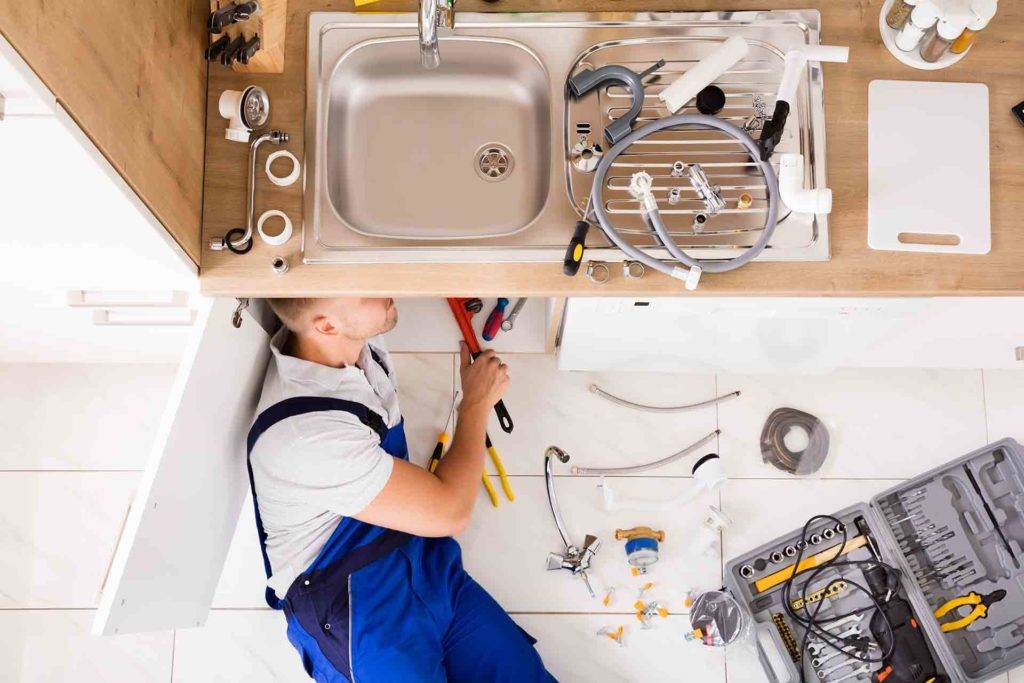


No comments yet!